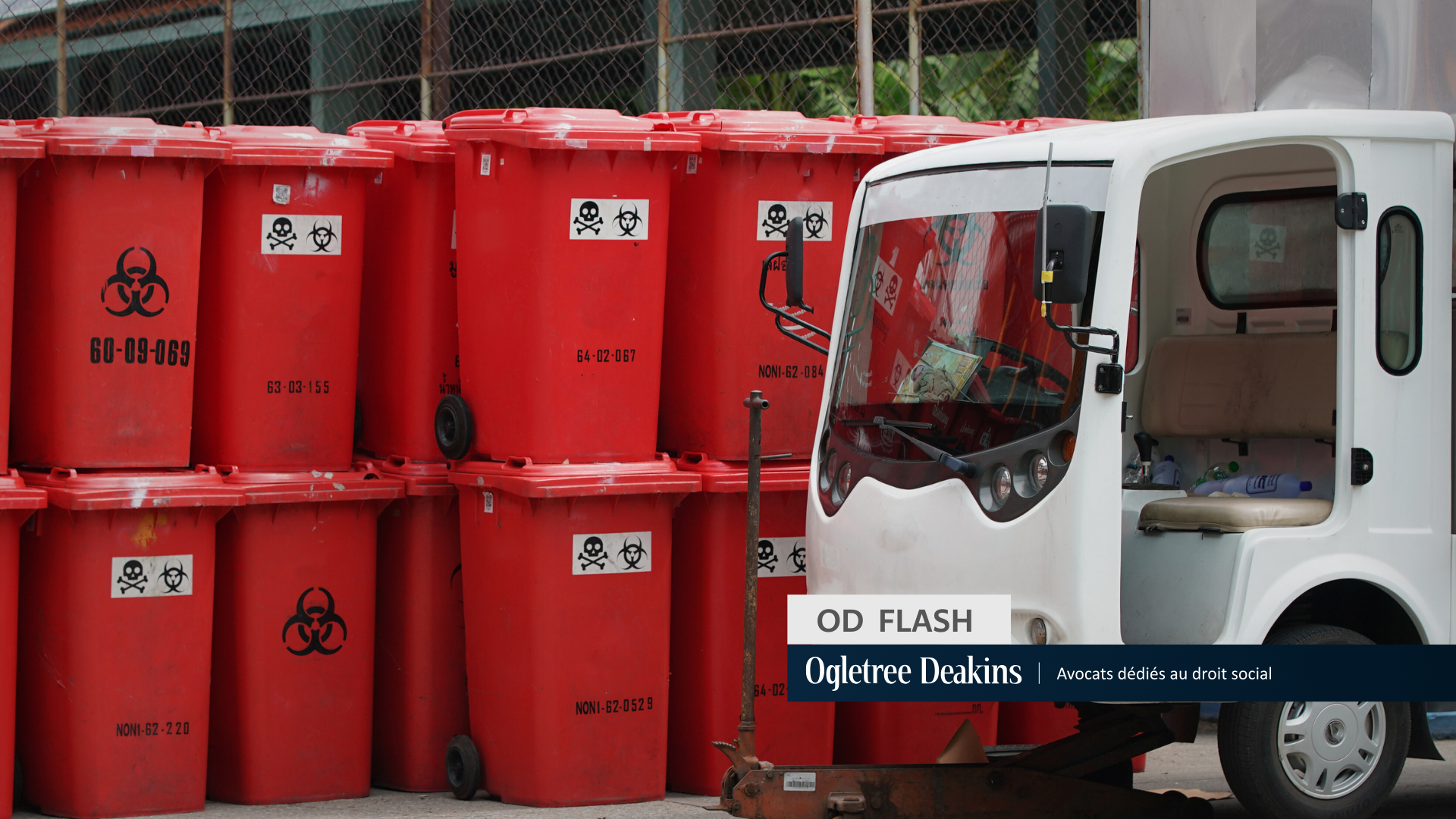French Supreme Court, Social Division, September 4, 2024, no. 22-20.917
In a decision handed down on September 4, 2024, the Social Division of the French Supreme Court (Cour de cassation) clarified the scope of a doctor’s attestation in assessing the prejudice of anxiety due to exposure to harmful or toxic substances.
Any employee exposed to asbestos, or another noxious or toxic substance can obtain compensation for their anxiety prejudice, consisting of the psychological disorders caused by the knowledge of the high risk of developing a serious pathology (Cass. Soc. September 11, 2019, n°17-24.879), in addition to their action for compensation for breach of safety obligation. To do so, the employee must prove:
- Their exposure to substances, and
- The prejudice personally endured (Cass. Ass. Plen. April 5, 2019, n°18-17442).
In this case, four employees had been employed by a company between 1975 and 1983, and had respectively retired between May 2010 and December 2016. A doctor had drawn up documents listing the products to which the employees may have been exposed during their working activities.
The employees had brought claims before the employment tribunal for compensation for the anxiety they had suffered as a result of occupational exposure to various chemicals, following the company’s failure to meet its safety obligation; and for the provision, under penalty, of certificates of exposure to CMR (Carcinogenic, Mutagenic and Reprotoxic) agents and asbestos.
In decisions handed down on July 8, 2021, the employment tribunal of Marseille dismissed the employees’ claims, notably on the grounds that the documents produced were insufficient to prove exposure and personal injury. The employees appealed. In four rulings handed down on July 1er 2022, the Aix-en-Provence Court of Appeal upheld the rulings in question, except insofar as they dismissed the employees’ claims for certificates of exposure to the CMR carcinogens in question.
The employees appealed to the French Supreme Court, complaining that the decisions :
- Dismissed their claims for damages to compensate for the anxiety they suffered as a result of their occupational exposure to various chemicals due to the employer’s breach of its safety obligation;
- Rejected their claims for damages for the employer’s failure to provide exposure sheets (a contractual obligation) for CMR agents and asbestos;
- Dismiss their claims for damages for the employer’s failure to provide exposure certificates (a legal obligation) for CMR agents and asbestos.
According to employees’ first plea, it is impossible to prove that an employee has suffered anxiety-related harm because it is too difficult to demonstrate. In other words, the mere demonstration of exposure to asbestos or any other harmful substance during one’s professional activity should suffice to prove the moral prejudice suffered by the employee.
According to the employee’s second and third pleas, the employer’s failure to meet its obligation to issue CMR and asbestos exposure sheets and certificates gave rise to de facto damages. Thus, the request was in fact for the judges to acknowledge the existence of a necessary prejudice by the failure to deliver these documents.
The questions put to the Cour de cassation were:
- Whether a doctor’s attestation of exposure to carcinogenic chemicals during the course of employment could, on its own, demonstrate exposure generating a high risk of developing a serious disease; and,
- The question of whether the employer’s failure to provide exposure sheets and certificates for noxious and toxic substances gave rise to compensation without the employee having to demonstrate any prejudice.
In a ruling handed down on September 4, 2024, the French Supreme Court ruled in the negative, upholding the rulings of the Versailles Court of Appeal. It ruled that the certificate drawn up by the doctor, listing the products to which employees may have been exposed during their professional activity was not sufficient to demonstrate exposure generating a high risk of developing a serious pathology. Indeed, the document did not describe the personal exposure situation or the positions actually occupied in contact with the harmful or toxic substance. Furthermore, the Court ruled that, while the employer had indeed failed to provide the employees with exposure sheets and certificates, the latter had not demonstrated any prejudice linked to this failure.
The principle of the trial judge’s sovereign appreciation of the evidence of personal exposure generating a high risk of serious pathology is therefore maintained. It had already been ruled that the employer’s attestation of exposure to a harmful or toxic substance was not sufficient to characterize the employee’s anxiety prejudice (Cass. Soc. October 13, 2021 n°20-16.585), since the employee must still provide proof of his “personally suffered” anxiety prejudice. The ruling of September 4, 2024 clarifies this principle by restricting the scope of a doctor’s certificate attesting to such exposure, which is not sufficient to demonstrate the anxiety loss.



